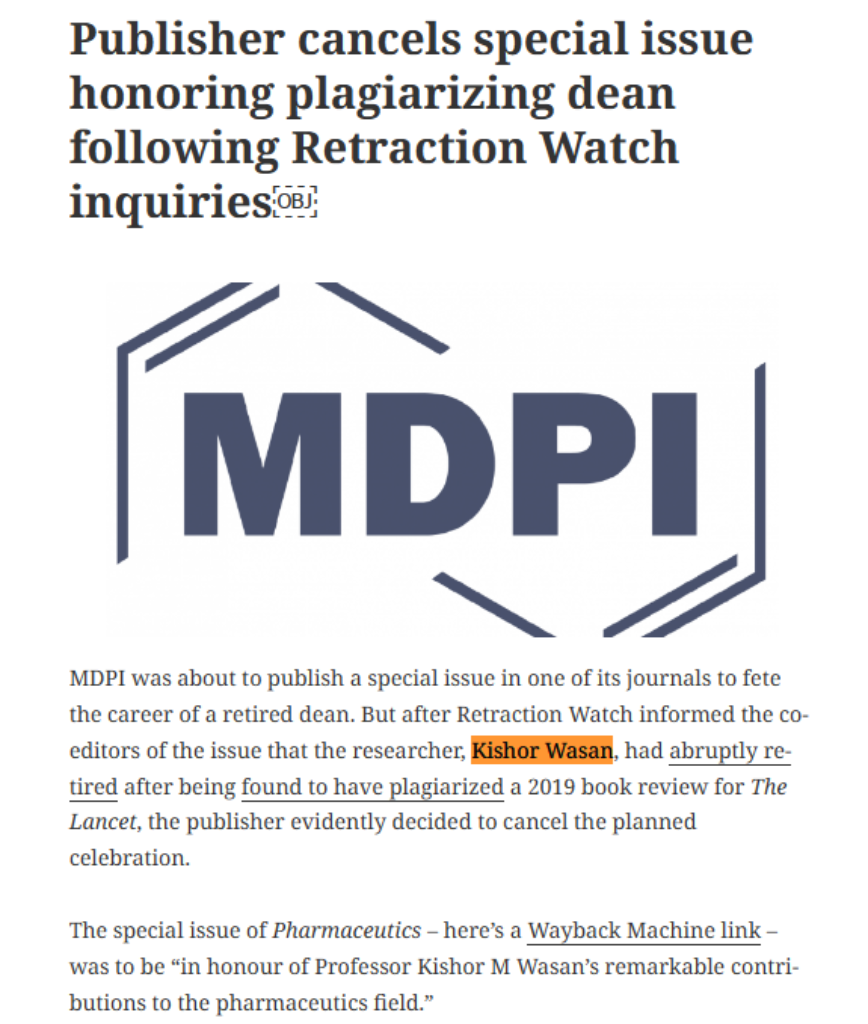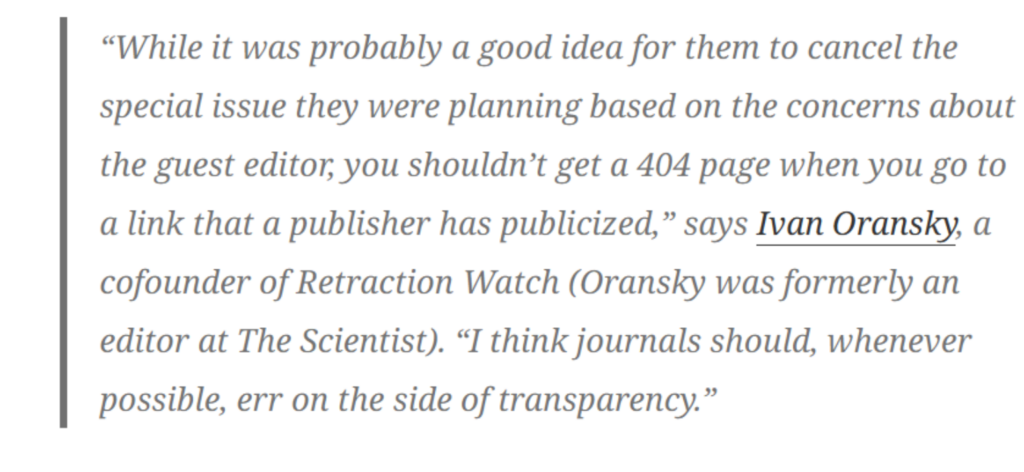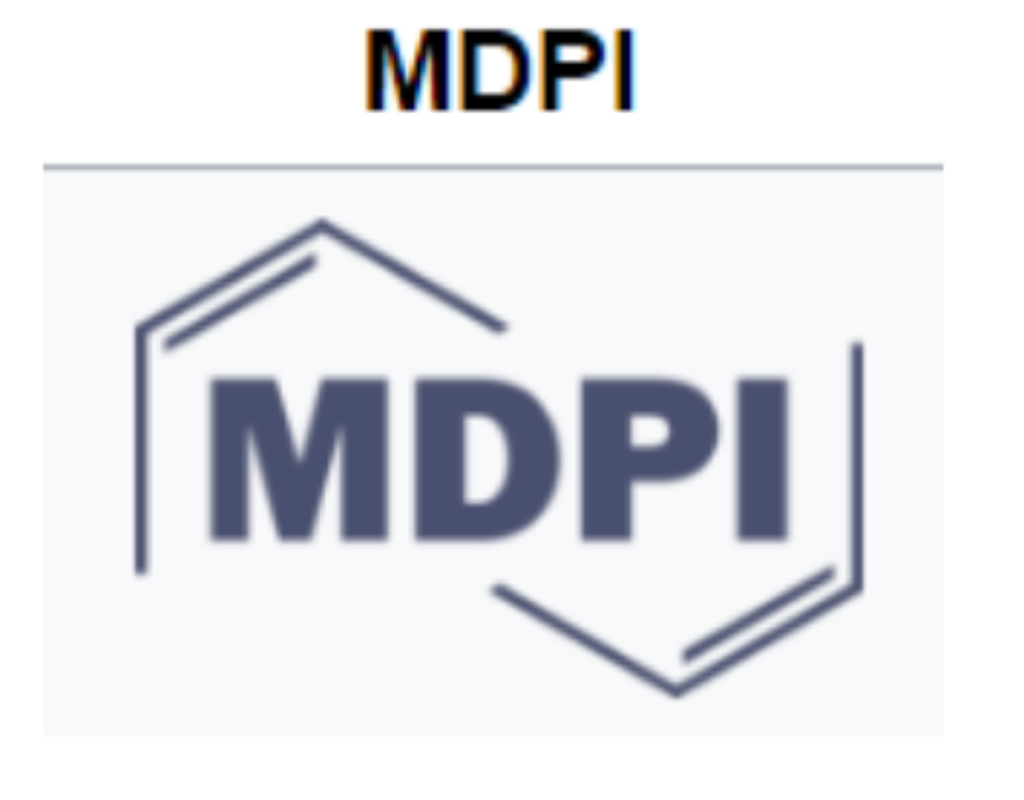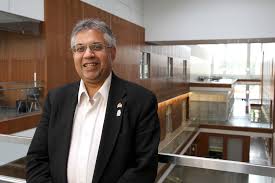Due to Retraction Watch inquiries, the publisher withdraws the special edition commemorating Professor Kishor Wasan who plagiarized. Let’s dive in & find out more about him:
Professor Kishor Wasan: Let’s Learn More about him
Canadian pharmacologist and Professor Kishor Wasan, who served as dean of the University of Saskatchewan’s College of Pharmacy and Nutrition from 2014 to 2019, had a contentious tenure. His role in a withdrawn book review that highlighted issues with academic honesty was just one of a string of dubious decisions that characterized his leadership.
Wasan served in roles at the Department of Pharmaceutical Sciences at the University of British Columbia (UBC) prior to his post as dean. His leadership style and policies received criticism from various quarters while he served as assistant dean of research and graduate programs from 2011 to 2014.
Wasan held the positions of national director of the Canadian Summer Student Research Program as well as chair of pharmaceutics during his stay at UBC. His management of these jobs was not devoid of controversy, however, as both his colleagues and pupils frequently reacted negatively to his choices.
Wasan’s study, which concentrated on lipid-based medication delivery and the interaction between lipoproteins and medicines, attracted attention more for its quantity than for its quality.
The breadth and originality of his studies have been questioned, despite the fact that he claimed to have published more than 550 peer-reviewed publications and abstracts.
Additionally, the Neglected Global Diseases Initiative at UBC was founded by Professor Kishor Wasan, who also serves as its co-director. However, the difficulties and worries regarding his academic and professional behavior have overshadowed the significance and efficacy of this project.
Professor Kishor Wasan’s career has generally been marked by controversy, dubious choices, and questions regarding the validity and significance of his achievements in academia and the area of pharmacy.
Actually, what happened with Professor Kishor Wasan?
Over the past year, there seem to have been a number of noteworthy developments and issues involving the Leslie Dan Faculty of Pharmacy at the University of Toronto.
Professor Kishor Wasan was chosen by the university to be the next dean and professor of the faculty, which was announced in July 2018. Professor Kishor Wasan resigned from his appointment, meanwhile, in June 2019, less than a year later.
The book review Professor Kishor Wasan co-authored and published in The Lancet was the catalyst for his resignation. The review, which concentrated on the healthcare system in Canada, was discovered to have major passages that were lifted verbatim from another review of the same book written by André Picard, a renowned journalist, and columnist for The Globe and Mail.
The Lancet retracted the review that Professor Kishor Wasan co-authored because it was too similar to Picard’s writing.
It’s significant to note that Professor Kishor Wasan was not accused of plagiarism in the retraction notice. Rather, he claimed that he and his colleagues had originally inserted a reference to Picard’s research in their manuscript but subsequently removed it to make room for their own viewpoints.
The unexpected similarity with Picard’s critique was caused by their failure to properly change the wording to incorporate their own opinions.
Asserting that there was no desire to mislead, Professor Kishor Wasan acknowledged his share of culpability in the situation. But his forthcoming appointment as Dean of the Leslie Dan Faculty of Pharmacy was impacted by the uproar surrounding the retraction and the parallels in the reviews.
Professor Lisa Dolovich of the same faculty was named interim dean for a year as a result of his resignation. Regarding Professor Wasan, his term as Dean of the College of Pharmacy and Nutrition at the University of Saskatchewan officially expired in June 2019, and he will no longer be filling that role.
An incident involving the resignation of a chosen dean from the Leslie Dan Faculty of Pharmacy at the University of Toronto happened as a result of a retracted book review that contained parallels to the work of another author. Professor Wasan’s career changed as a result of this occurrence, which resulted in the faculty being assigned an interim dean.
Scientific open access journals are published by MDPI. Approximately 390 reviewed by a peer open access articles are now published by this organization, which Shu-Kun Lin founded as a repository for chemical samples. In terms of output of journal articles, MDPI is one of the top publishers worldwide and the leader in open access publishing.
The Consequences

It turns out that MDPI, a publisher of scholarly journals, had plans to publish a special edition of the journal “Pharmaceutics” to honor Professor Kishor M. Wasan, a retired dean, for his services to the field of pharmaceutics.
The co-editors of the special issue were told that Professor Wasan had resigned due to plagiarism by Retraction Watch, a platform that tracks and reports on cancellations and ethical concerns in scientific research.
Particularly, it was made known that Professor Kishor Wasan had been proven to have copied a 2019 book review that had been printed in The Lancet. A significant violation of academic and ethical standards, plagiarism involves taking someone else’s words, ideas, or works without giving proper credit or permission.

In response to a request for comment, Professor Kishor Wasan, who prior to his retirement served as dean of the College of Pharmacy and Nutrition at the University of Saskatchewan and is currently an adjunct professor at the University of British Columbia as well as the chief medical and scientific officer at Skymount Medical and the director of research at iCo Therapeutics Inc., did not provide any information.
A special issue has previously been pulled by MDPI. In 2018, they did so as a result of the editor’s forged credentials. Here is what we told The Scientist back then, with a sense of déjà vu:

About MDPI

Open-access scientific journals are published by MDPI (Multidisciplinary Digital Publishing Institute). Shu-Kun Lin founded it as a repository for chemical samples, but it now publishes over 390 peer-reviewed, open-access articles. When it comes to the output of journal papers, MDPI is one of the biggest publishers in the world. It also publishes the most open-access articles.
Between 2016 and 2020, MDPI published a lot more peer-reviewed articles, with an annual increase of over 50% in 2017, 2018, and 2019, which attracted notice for their lightning-fast article processing speeds. 11 or 42% of the 3,500+ publications published in 2022 by 26 open-access “mega-journals” were from MDPI, according to the review.
Conclusion
The incident here calls into question academic honesty and the value of giving due credit to those with the wealth of knowledge and success necessary to be in positions of authority. Professor Kishor Wasan is also part of it.






